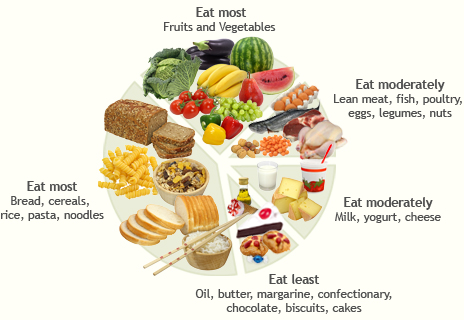Food and nutrition
Did you know?
Role modelling is an important part of teaching children about nutrition. If they see others eating well, they will understand that this is the right thing to do.
Good nutrition is important at any age, but especially for young children who are growing and developing.
During mealtimes and snack times, you'll have opportunities to talk with the children about nutrition. Some other strategies for getting children involved with and understanding nutritional needs are:
- to involve children in the preparation of snacks
- keep regular routines but ensure flexibility when required
- make mealtimes informal
- sit with children and engage them in appropriate interactions
- involve children in the cleaning up process
- provide a variety of different types of food.
Other opportunities to explore food and nutrition learning with children can be provided through:
- home corners
- restaurant/cafe play
- shopping areas
- cooking/food preparation experiences.
Five food groups
The five food groups are often used to classify foods. They provide a guideline on the proportions of food that should be eaten to maintain a healthy diet.

The Better Health Channel website has great fact sheets on a number of health issues, including Food and Nutrition.
Select Fact sheets - A to Z, then have a particular look at the articles mentioned below.
- Food variety and a healthy diet
- Healthy eating for kids
- Overweight children – healthy lifestyle tips.
(If you want to, you can save a copy of these articles by clicking Print fact sheet and saving the document).
Think of 3 different fun and interesting activities to promote healthy eating to the children in your care.
For each idea:
- State what information you would explore with the children (eg that we should eat lots of fruit and veg).
- Describe the activity you would provide to enable this exploration (eg a drawing activity where children draw their favourite fruit).
Write the details of your 3 activities in your notebook.
When providing food for children we must be vigilant that we're working in a safe and hygienic manner.
Adopting good practices such as washing hands and wiping dirty faces before eating, ensuring tables and high chairs are clean before using, and not placing food directly onto surfaces other than plates and bowls will help to maintain a healthy, clean and safe environment. We should also bear in mind the importance of good food handling, such as ensuring that food is stored and cooked properly as well as separating cooked and raw foods. Using tongs and serving implements also ensures that food is provided to children hygienically.
Supervision is paramount to a young child’s safety and this applies to meal and snack times also, therefore staff will need to be close to children and monitor them whilst they are eating. Allergies and choking are just a couple of concerns which can affect children during mealtimes, so we can see just how important it is to ensure children are given appropriate foods which reflect their age and developmental capabilities. Babies will require their foods to be pureed before serving, and this will progress to eating finger foods and lumpier foods under careful supervision.




